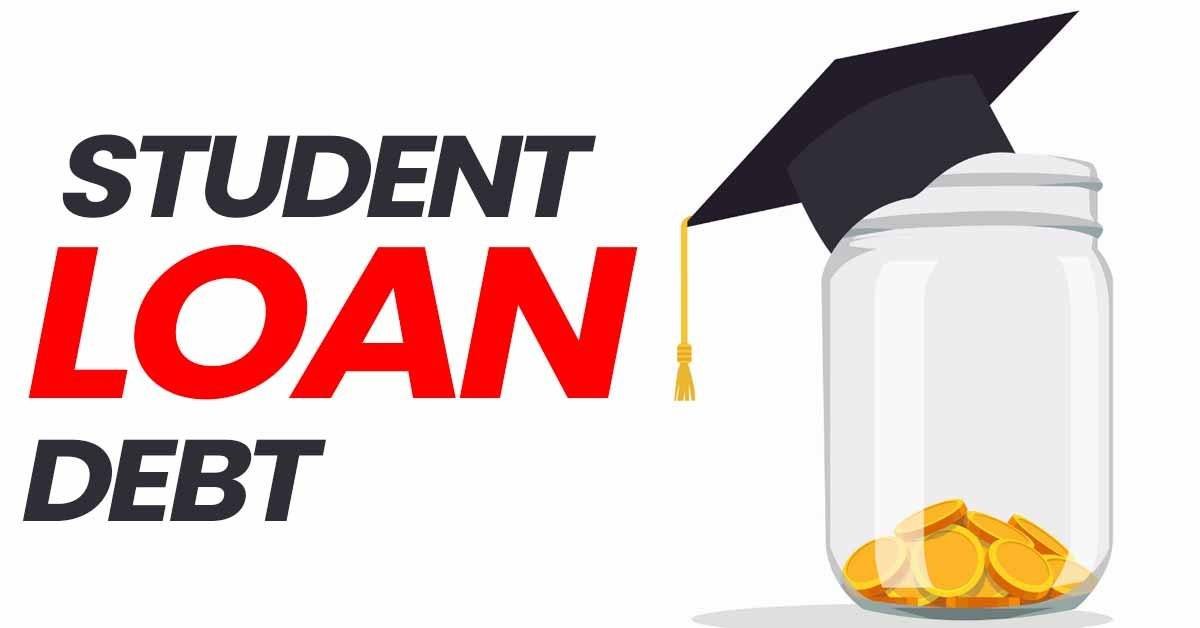Student loan debt is a pressing issue for millions of graduates worldwide. Understanding the intricacies of student loans and effective strategies for managing debt is crucial for financial stability. This detailed guide will help you navigate the complexities of student loan debt, offering tips on repayment, forgiveness programs, and financial management.
What is Student Loan Debt?
Student loan debt is money borrowed to pay for education expenses, including tuition, books, and living costs. These loans can be obtained from the government (federal loans) or private lenders. Unlike other forms of debt, student loans often have specific terms and conditions tailored to the needs of students.
Types of Student Loans
- Federal Student Loans: Offered by the government with fixed interest rates and various repayment options.
- Subsidized Loans: Interest is paid by the government while you’re in school.
- Unsubsidized Loans: Interest accrues while you’re in school.
- Private Student Loans: Provided by private lenders like banks or credit unions, often with variable interest rates.
Understanding Your Student Loan Terms
Interest Rates
Interest rates significantly affect the total amount you’ll repay. Federal loans typically have lower fixed rates, while private loans can have variable rates.
Repayment Plans
Federal loans offer multiple repayment plans:
- Standard Repayment Plan: Fixed payments over ten years.
- Graduated Repayment Plan: Payments start lower and increase every two years.
- Income-Driven Repayment Plans: Payments are based on your income and family size.
Loan Forgiveness Programs
Certain professions, such as teaching or public service, may qualify for loan forgiveness programs, where a portion of your loan is forgiven after meeting specific criteria.
Strategies for Managing Student Loan Debt
Create a Budget
Understanding your income and expenses is the first step in managing student loan debt. Create a monthly budget to track your spending and identify areas where you can cut costs.
Prioritize High-Interest Debt
Focus on paying off loans with the highest interest rates first to minimize the total interest paid over time.
Explore Repayment Plans
Evaluate the different repayment plans available to find one that suits your financial situation. Income-driven plans can be beneficial if your earnings are currently low.
Consider Loan Consolidation or Refinancing
- Loan Consolidation: Combining multiple federal loans into a single loan with one monthly payment.
- Loan Refinancing: Replacing your current loan with a new one, potentially with a lower interest rate. This is more common with private loans.
Make Extra Payments
If possible, make extra payments toward your principal balance. This can reduce the total interest paid and shorten the repayment period.
Take Advantage of Employer Repayment Assistance
Some employers offer student loan repayment assistance as part of their benefits package. Check if your employer provides this benefit.
Avoiding Common Pitfalls
Deferment and Forbearance
While these options allow you to temporarily stop or reduce payments, interest may continue to accrue, increasing the total amount owed.
Missed Payments
Missing payments can lead to default, damaging your credit score and making it harder to obtain loans in the future. Always contact your lender if you’re struggling to make payments.
Relying Solely on Loan Forgiveness
While loan forgiveness can be helpful, qualifying for these programs can be challenging and uncertain. Have a backup plan for repaying your loans.
Building Financial Habits
Emergency Fund
Set aside a portion of your income into an emergency fund to cover unexpected expenses, preventing you from relying on credit cards or additional loans.
Credit Score Management
Maintaining a good credit score can help you secure better interest rates for refinancing or other loans in the future. Make sure to pay all your bills on time and keep your credit card balances low.
Financial Education
Continually educate yourself about personal finance. Understanding topics like investing, budgeting, and saving can help you make informed financial decisions.
Conclusion
Managing student loan debt requires a combination of understanding your loan terms, exploring repayment options, and implementing effective financial strategies. By creating a budget, prioritizing high-interest debt, and exploring loan forgiveness or employer assistance programs, you can take control of your student loans and work towards financial stability.
Staying proactive and informed about your student loans can significantly reduce the stress and burden of debt. Remember, it’s essential to continually reassess your financial situation and adjust your strategies accordingly to ensure you’re on the right path to managing your student loan debt effectively.
